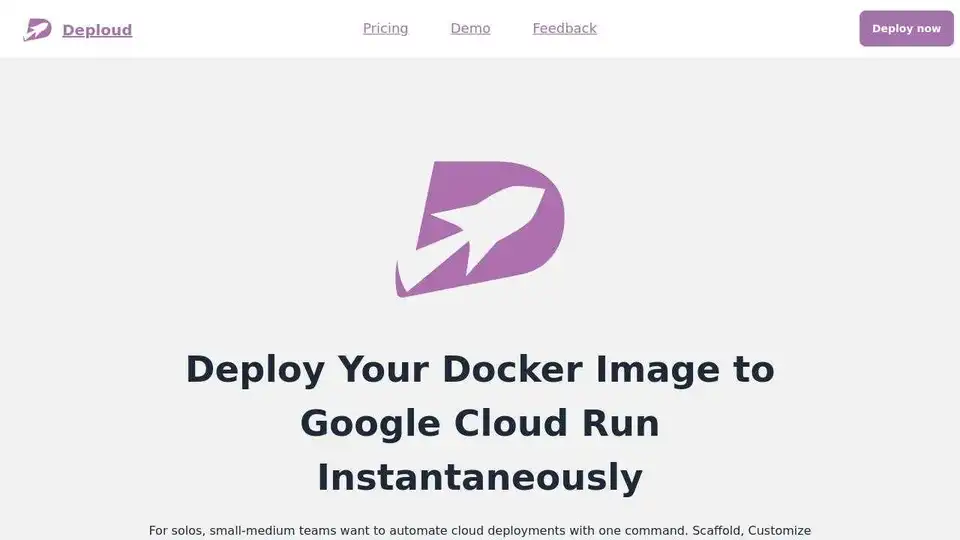
Deploud
Overview of Deploud
Deploud: Simplify Your Docker Image Deployment to Google Cloud Run
What is Deploud?
Deploud is a tool designed to streamline the deployment of Docker images to Google Cloud Run. It caters to solo developers and small to medium-sized teams looking to automate their cloud deployments with a single, straightforward command. Instead of navigating complex documentation and dealing with obtuse errors, Deploud allows you to scaffold, customize, and own your deployment scripts, ensuring full control and future-proofing your cloud services.
How does Deploud work?
Deploud works by generating a .zip file that contains all the necessary files to deploy your application. This includes:
- cli: Command-line interface tools.
- pulumi: Infrastructure as Code tool for managing cloud resources.
- scripts: Deployment and deletion scripts.
- gen.bash: Script to install CLI tools and configure permissions.
- del.bash: Script to delete cloud resources.
- config.json: Configuration file.
These scripts automate the following:
- Installing required CLI tools (gcloud, expect, docker, jq, pulumi, golang).
- Configuring necessary permissions in GCloud.
- Scaffolding Pulumi scripts for infrastructure deployment.
The generated scripts are idempotent, meaning you can run them multiple times without creating duplicate resources.
How to use Deploud?
- Create a new project: Provide the name of your project and choose the service you want to deploy to (Cloud Run, AWS Lambda, or Azure Functions).
- Create scripts: Download the generated
.zipfile and unzip it into your project directory. - Run the code: Navigate to the directory where you unzipped the files and execute
bash gen.bash. - Run Pulumi: Navigate to the Pulumi folder and run
pulumi upto deploy your application. - Delete Cloud Resources: To remove the deployed resources, run
bash del.bash.
Why is Deploud important?
Deploud addresses common pain points in cloud deployment, such as:
- Saving Engineering Time: Automates infrastructure setup, allowing developers to focus on delivering value.
- Avoiding Documentation Overload: Provides a simplified deployment process without fragmented documentation.
- Handling Cloud Service Nuances: Manages the complexities of cloud service APIs and security limitations.
- Ensuring Control: Provides fully customizable scripts, ensuring you retain control over your deployment process.
Who is Deploud for?
Deploud is ideal for:
- Solos and small to medium-sized teams: Who want to automate cloud deployments.
- Developers: Who want to save engineering time and avoid infrastructure hassles.
- Teams: That want full control over their cloud services and the ability to customize deployment scripts.
Key Features and Benefits:
- Automated Deployment: Deploys Docker images to Google Cloud Run with a single command.
- Customizable Scripts: Provides full control over deployment scripts, which can be modified and kept.
- Infrastructure as Code: Uses Pulumi for infrastructure management, ensuring consistency and repeatability.
- Idempotent Scripts: Prevents the creation of duplicate resources, ensuring reliable deployments.
- Multi-Cloud Support: Supports deployment to Google Cloud Run, AWS Lambda, and Azure Functions.
Simple Pricing
Deploud offers a free tier and a paid tier with additional features. The free tier includes verified scripts, project creation with the cloud provider, setup of service accounts with minimum permissions, scaffolding of Pulumi infrastructure code, built-in idempotency, and support for one environment (staging).
What Makes Deploud Different?
Unlike other services, Deploud gives you full control over your deployment scripts, allowing you to customize them to your specific needs. It differs from using Infrastructure as Code (IaaC) tools like Pulumi and Terraform by providing a simplified and automated deployment process. Deploud produces verified scripts and ensure minimal permissions, and its verified scripts address cryptic error messages.
System Requirements
Deploud requires a bash-supported environment, such as Windows Subsystem for Linux (WSL), Linux, or MacOS.
- Windows Subsystem for Linux (WSL)
- MacOS
- Linux
Customer Feedback
Deploud is committed to continuous improvement and values user feedback. You can provide feedback through the GitHub repo or by contacting the Deploud team directly.
By automating the deployment process and providing fully customizable scripts, Deploud empowers developers to focus on building and delivering value to their customers.
Best Alternative Tools to "Deploud"
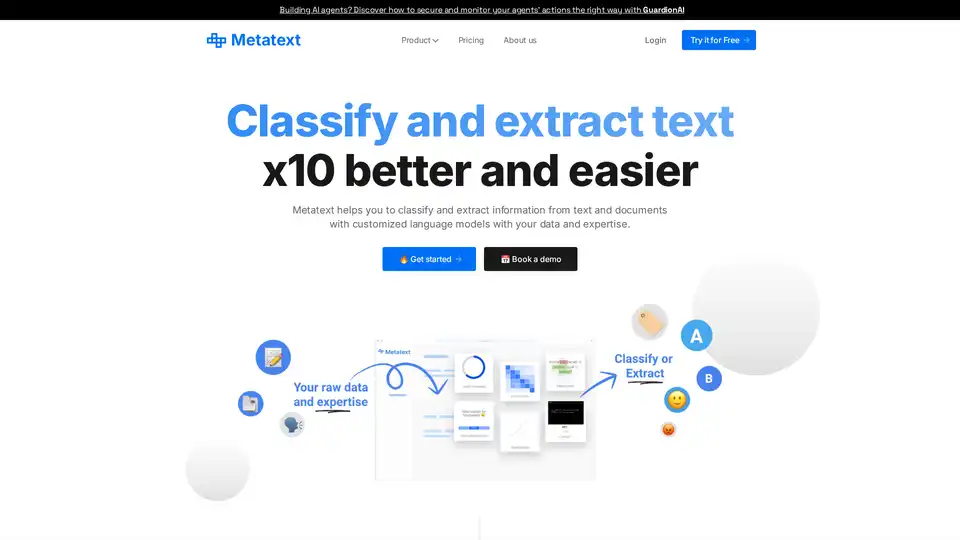
Metatext is a no-code NLP platform that enables users to create custom text classification and extraction models 10x faster using their own data and expertise.
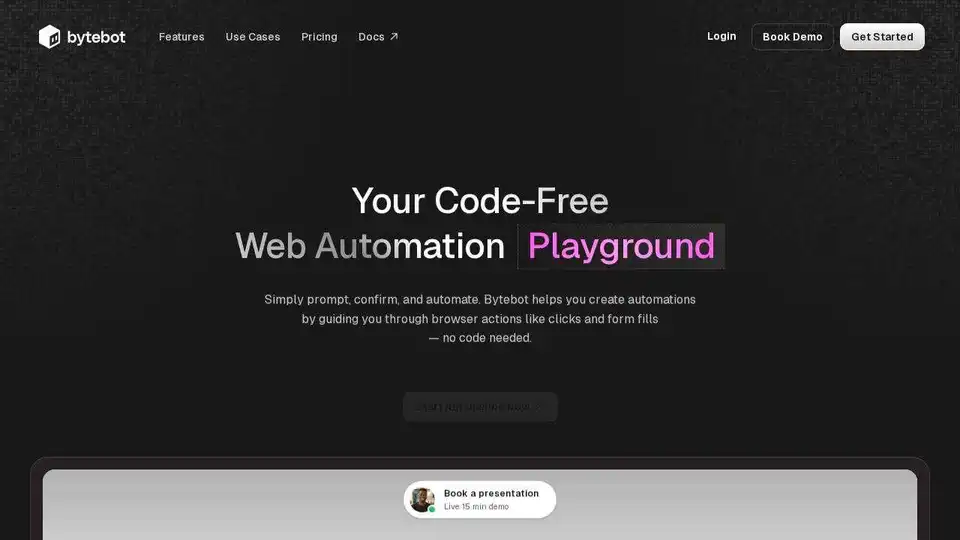
Bytebot is an open-source AI desktop agent that automates tasks across multiple apps by using a virtual computer. Scale from one to hundreds of agents in parallel and integrate with any software.
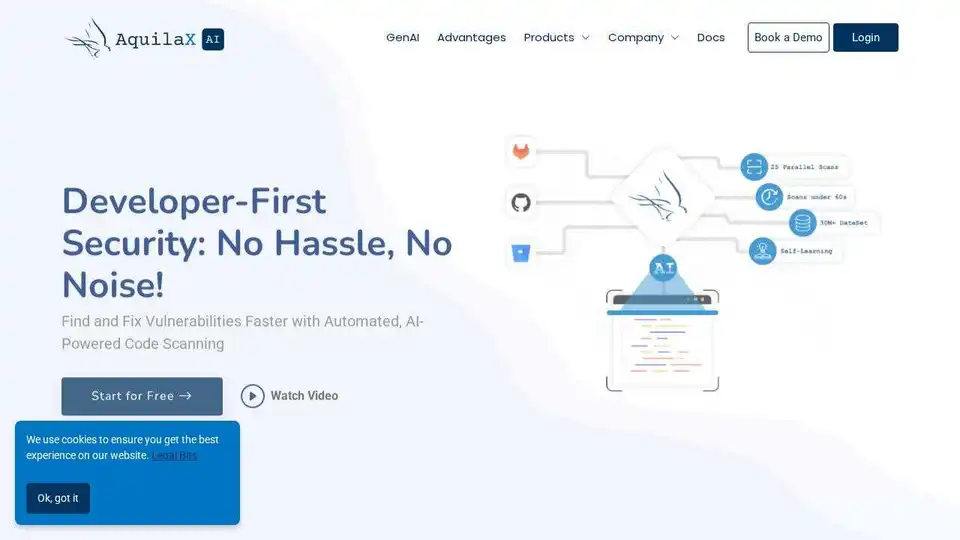
AquilaX Security is an AI-powered DevSecOps platform that automates security scanning, reduces false positives, and helps developers ship secure code faster. Integrates SAST, SCA, container, IaC, secrets, and malware scanners.
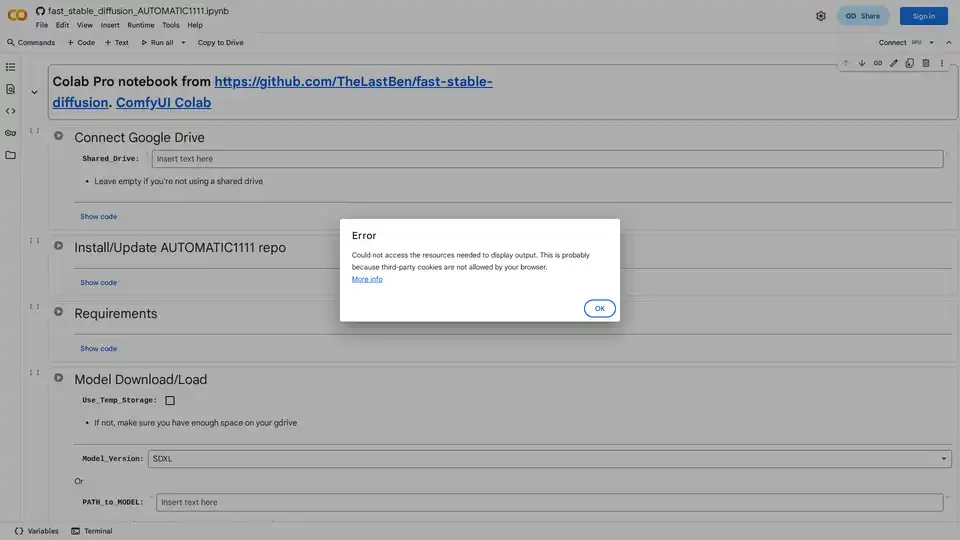
Discover how to effortlessly run Stable Diffusion using AUTOMATIC1111's web UI on Google Colab. Install models, LoRAs, and ControlNet for fast AI image generation without local hardware.
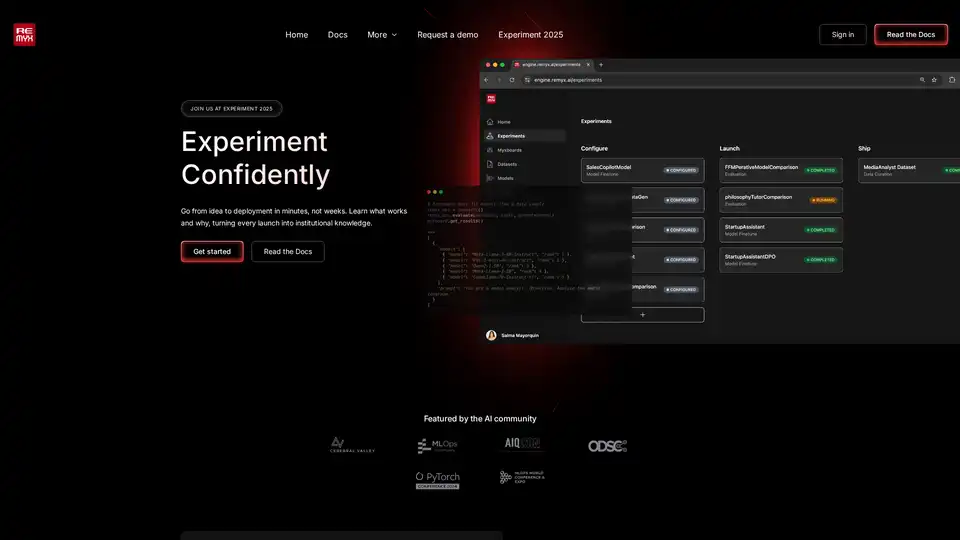
Remyx AI empowers AI developers and teams to run efficient experiments, build reliable models, and deploy production AI seamlessly, focusing on knowledge curation and real-world impact.
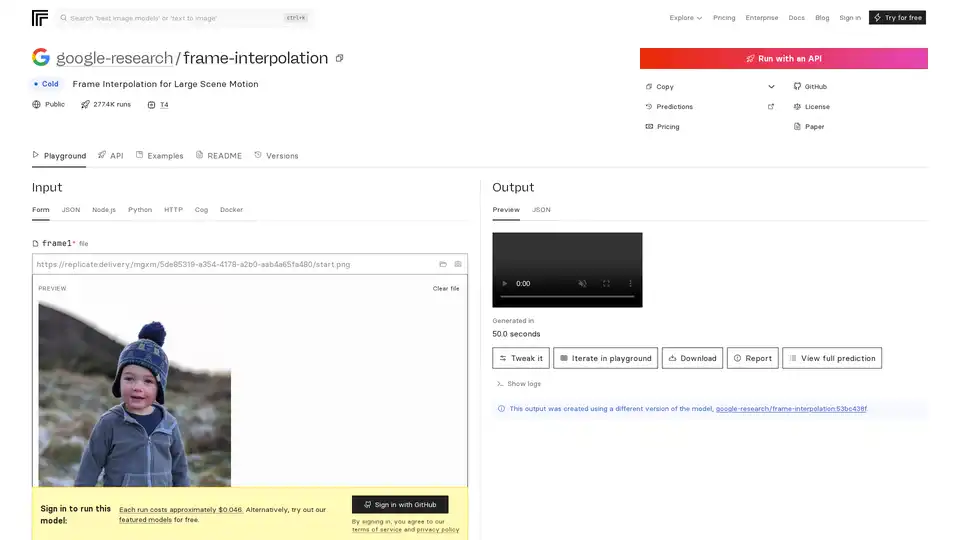
FILM is Google's advanced AI model for frame interpolation, enabling smooth video generation from two input frames even with large scene motion. Achieve state-of-the-art results without extra networks like optical flow.
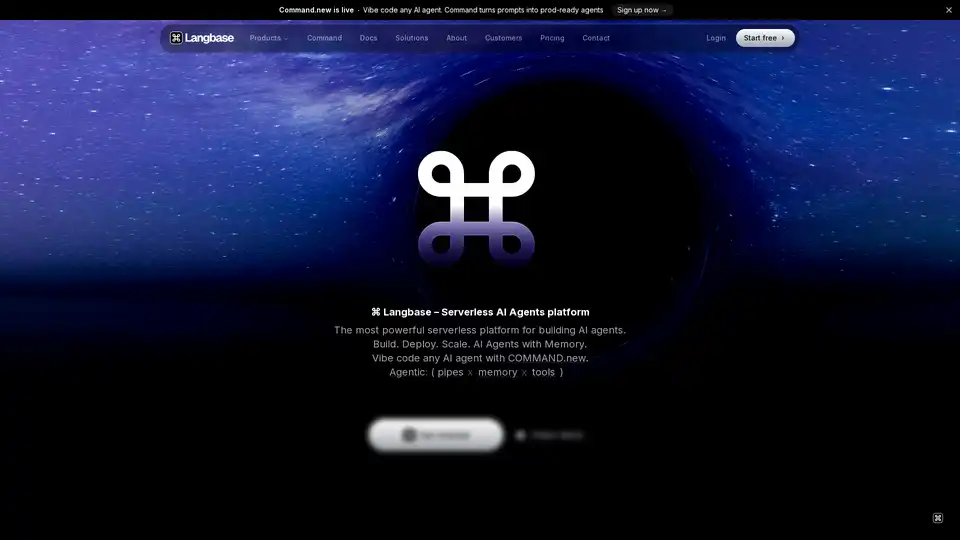
Langbase is a serverless AI developer platform that allows you to build, deploy, and scale AI agents with memory and tools. It offers a unified API for 250+ LLMs and features like RAG, cost prediction and open-source AI agents.
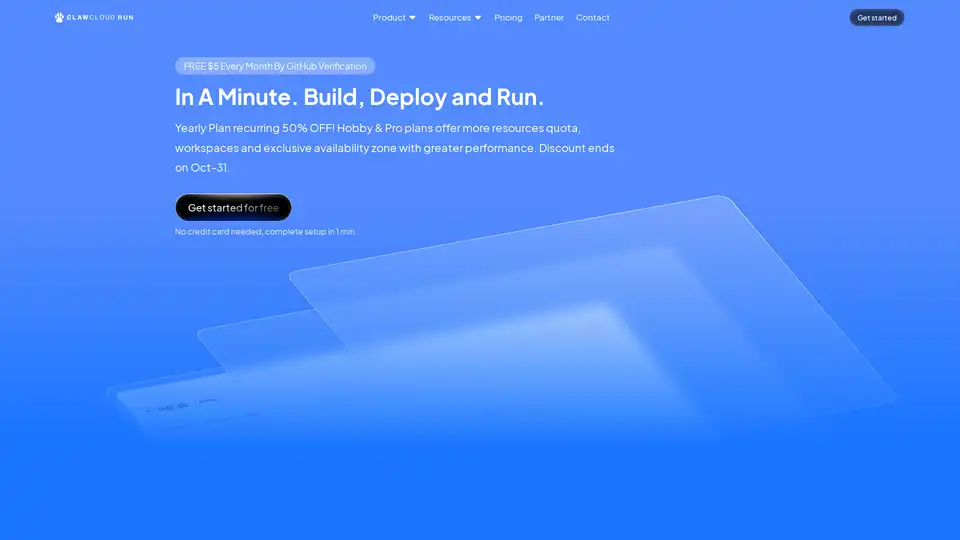
ClawCloud Run is a high-performance cloud-native deployment platform featuring integrated GitOps workflows, Docker/Kubernetes support, GitHub integration, and AI automation tools for developers.
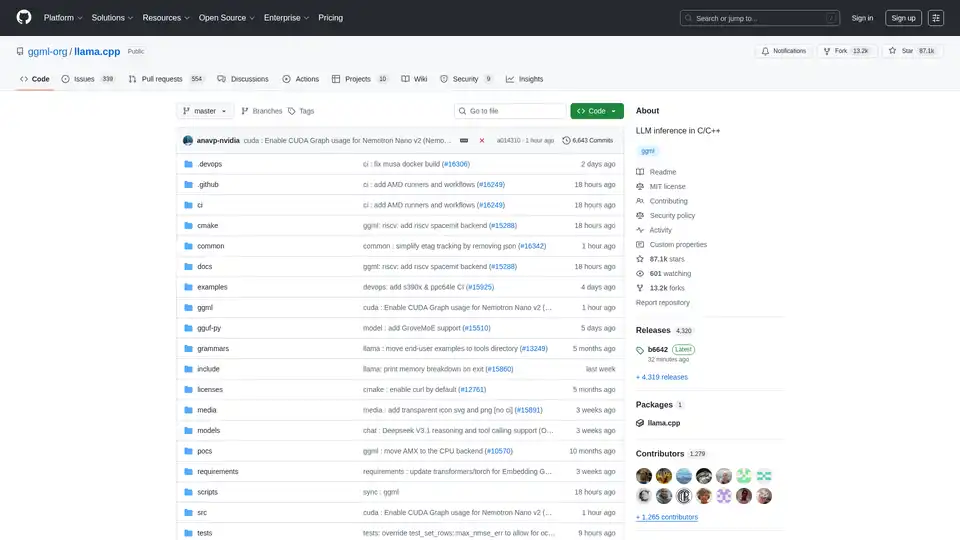
Enable efficient LLM inference with llama.cpp, a C/C++ library optimized for diverse hardware, supporting quantization, CUDA, and GGUF models. Ideal for local and cloud deployment.
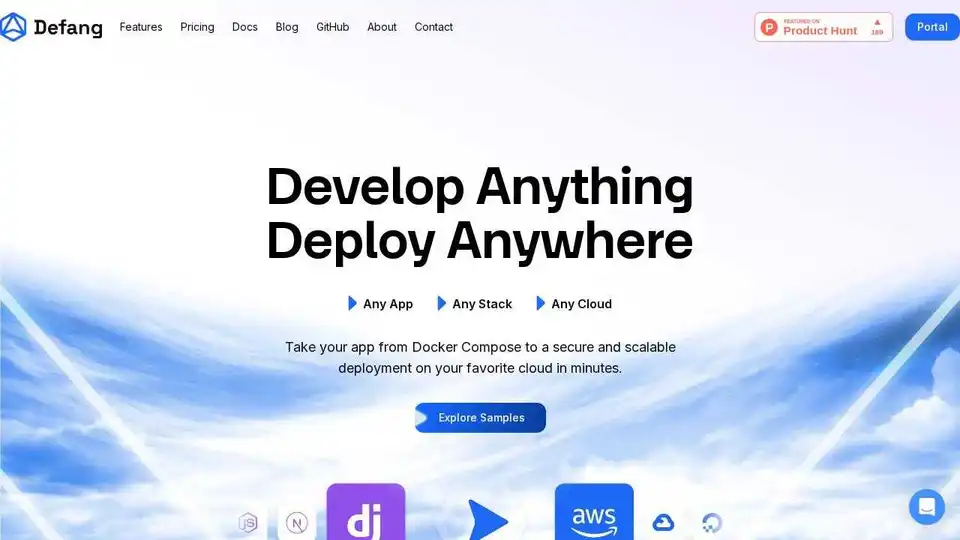
Defang: AI DevOps Agent for deploying any app to any cloud in one step. Simplify cloud deployments and focus on building.
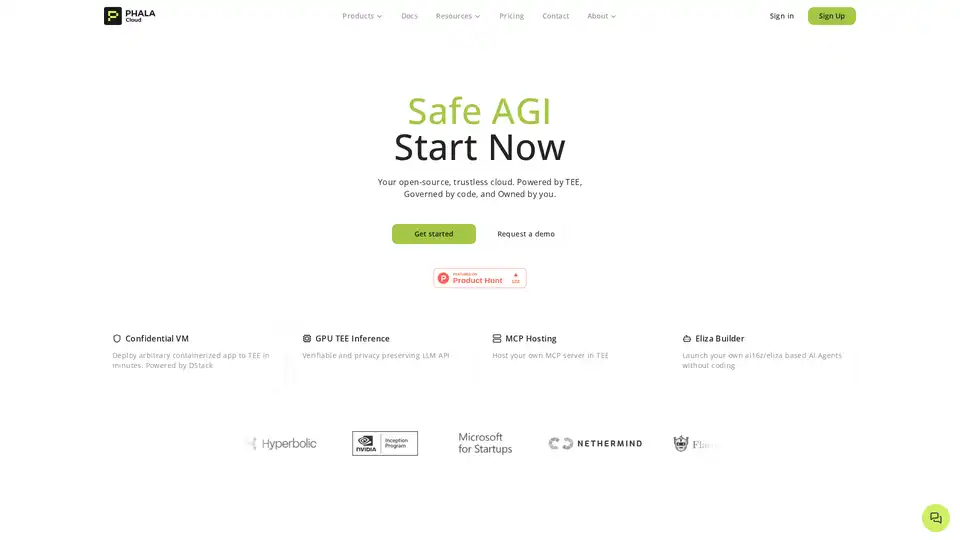
Phala Cloud offers a trustless, open-source cloud infrastructure for deploying AI agents and Web3 applications, powered by TEE. It ensures privacy, scalability, and is governed by code.
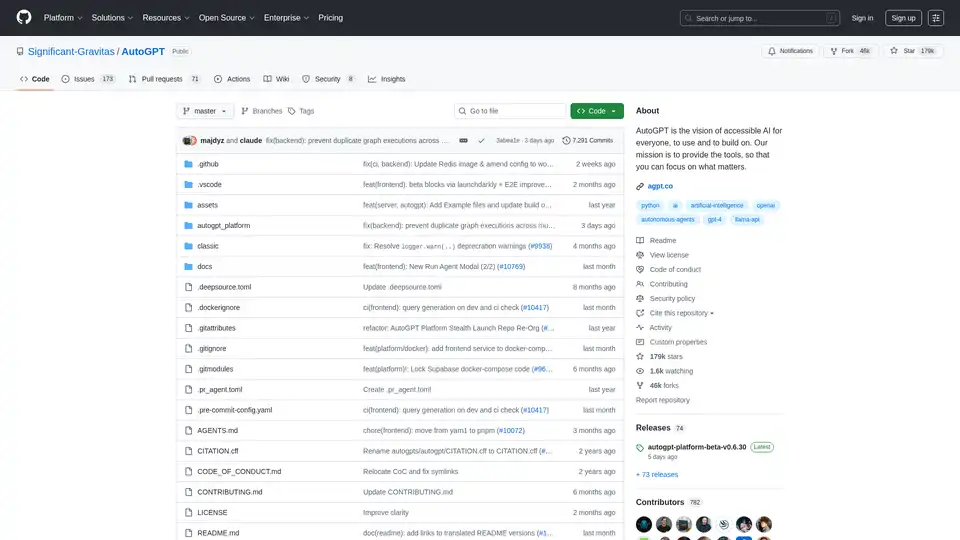
AutoGPT is an open-source platform to build, deploy, and manage AI agents that automate complex workflows. Customize agents or use pre-configured ones. Perfect for AI workflow automation.
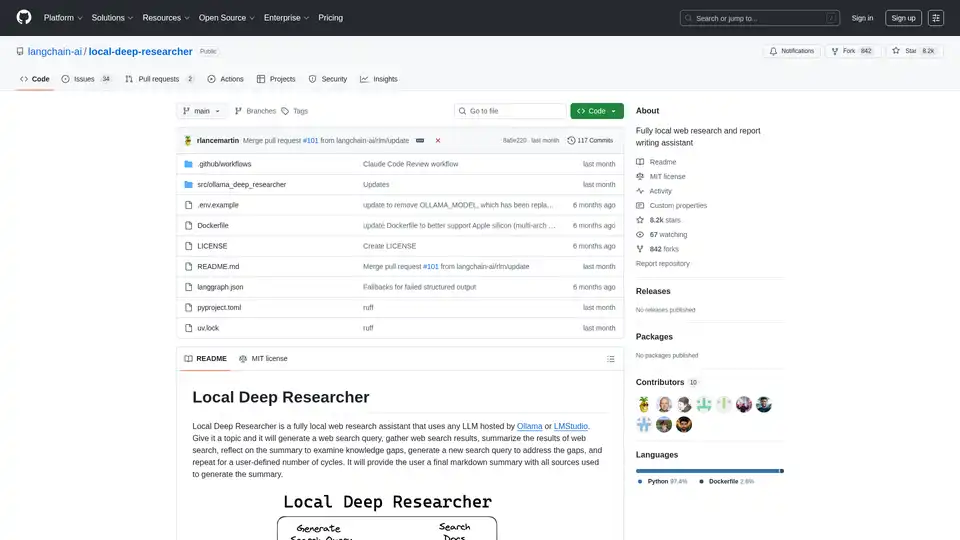
Local Deep Researcher is a fully local web research assistant that uses LLMs via Ollama or LMStudio to generate search queries, gather results, summarize findings, and create comprehensive research reports with proper citations.
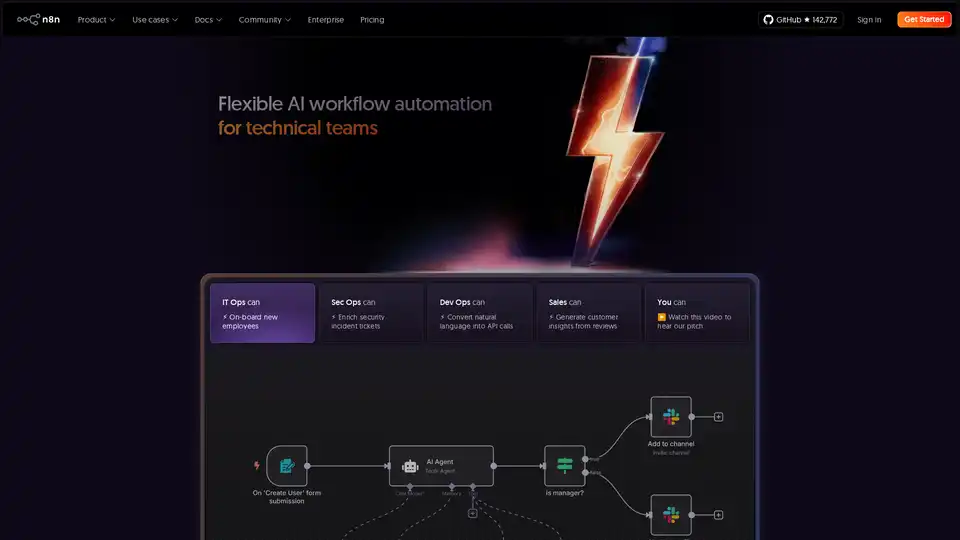
n8n is an AI-powered workflow automation platform that combines code flexibility with no-code speed, offering 500+ integrations for technical teams to build multi-step AI agents and automate complex business processes.
